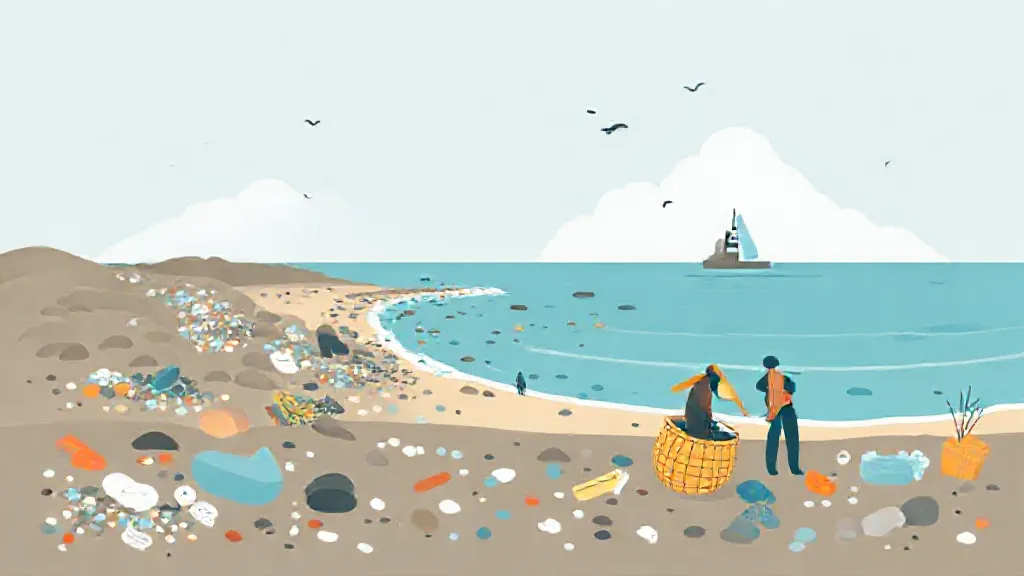Marine pollution is a pressing global issue that affects ecosystems, human health, and economies. While pollution occurs in many forms, such as plastic waste, oil spills, and chemical runoff, certain regions and ecosystems experience its detrimental effects more acutely than others. Understanding where marine pollution hurts the most is essential for developing targeted solutions and raising awareness about this critical environmental challenge.
Regions Most Affected by Marine Pollution
Coastal areas are particularly vulnerable to marine pollution due to their proximity to urban centers and industrial activities. One of the most affected regions is the Southeast Asian coastline, which is home to some of the world's busiest shipping lanes and rapidly growing populations. Countries such as Indonesia, the Philippines, and Vietnam face significant challenges with plastic waste, as millions of tons of debris enter the ocean each year.
The Great Pacific Garbage Patch, a massive accumulation of plastic debris, serves as a stark reminder of the pollution crisis, impacting marine life and ecosystems across the Pacific Ocean.
The Impact on Marine Ecosystems
Marine ecosystems such as coral reefs, mangroves, and estuaries are particularly sensitive to pollution. Coral reefs, which support a diverse range of marine species, are being decimated by both climate change and pollution.
Nutrient runoff from agriculture leads to algal blooms that can smother corals and deplete oxygen levels in the water. The Caribbean Sea, known for its rich biodiversity, is experiencing alarming declines in coral health due to these stressors. Protecting these vital ecosystems requires urgent action to reduce pollution and mitigate its impacts.
Human Health Risks from Marine Pollution
The consequences of marine pollution extend beyond aquatic life to human health. Communities that rely on fishing for their livelihoods are at risk when pollutants such as heavy metals and microplastics accumulate in seafood. For instance, mercury contamination in fish has been linked to neurological issues in humans, particularly among vulnerable populations such as pregnant women and children.
The Gulf of Mexico, heavily impacted by industrial runoff and oil spills, serves as a case study for the health risks associated with consuming contaminated seafood.
Economic Consequences of Marine Pollution
The economic implications of marine pollution are profound. Tourism, fishing, and recreation industries suffer when marine environments are degraded.
The Caribbean, which depends heavily on tourism, has seen a decline in visitors due to polluted beaches and damaged coral reefs. A report from the United Nations estimates that the economic costs of marine pollution could reach $1 trillion annually if left unaddressed. This underscores the importance of investing in pollution prevention and clean-up efforts to protect both the environment and economies.
The Role of Policy and Management
Effective policy and management strategies are crucial in combatting marine pollution. International agreements, such as the MARPOL Convention, aim to prevent pollution from ships, while local regulations can limit plastic use and promote waste management. However, enforcement remains a challenge in many regions.
For instance, despite regulations in place, illegal dumping and inadequate waste management systems continue to plague coastal areas in developing nations. Strengthening governance and fostering collaboration among stakeholders is essential to tackle this issue effectively.
Community Involvement and Awareness
Community involvement is key to addressing marine pollution.
Grassroots movements and local organizations play a vital role in raising awareness and implementing clean-up initiatives. Educational programs that inform communities about the impacts of marine pollution can foster a sense of stewardship for local environments. For example, the Surfrider Foundation has mobilized volunteers to remove debris from beaches and advocate for policies that reduce plastic pollution.
Engaging communities in these efforts can lead to lasting change and a more sustainable future.
Future Directions for Research and Action
Continued research is necessary to fully understand the complexities of marine pollution and its impacts. Scientists are exploring innovative solutions, such as biodegradable materials and advanced waste management technologies, to mitigate pollution.
Additionally, monitoring programs that track pollution levels and ecosystem health are essential for informing policy decisions. Collaborative efforts between governments, NGOs, and the private sector can drive progress in addressing marine pollution on a global scale.
Conclusion: A Call to Action
Marine pollution is a multifaceted issue that requires immediate attention and action.
Identifying the regions and ecosystems most affected is the first step in prioritizing interventions. By fostering collaboration, raising awareness, and implementing effective policies, we can work towards a cleaner and healthier ocean. The time to act is now, for the sake of our planet and future generations.
